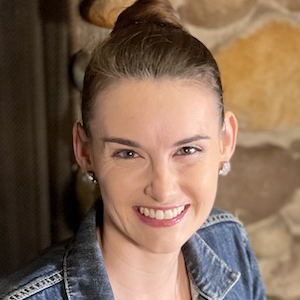Q: Help! My child is bright and I never thought they had a learning disability, but they have been struggling in school for years. They’ve even been working with tutors for years but their grades haven’t gone up. They want me to “get off their back” but they seem totally unmotivated to me. I don’t know what’s going on with them and I’m worried. Should I get my child evaluated for learning issues?
A: You are far from alone in this situation. Many families struggle with the same question.
At School Without Suffering, we conduct formal evaluations for students when there are questions about their actual skill levels given their performance at school. For example, some parents tell us that for the past few years their child has been afraid to really try because they’ve been afraid of failure so their full performance is likely to not reflect their actual abilities. The same can happen when a student has been dealing with mental health issues like anxiety or depression.
By the time many parents get to us, they’ve been thinking about having their child evaluated for a while, but they’ve had concerns that have stopped them from ever moving forward.
Here are some common concerns that can stop parents and caregivers from taking this important step for their child’s education:
I Don’t Want Them To Be Labeled
According to Understood.org, a resource we highly recommend, many families worry about their child being labeled, and for different reasons. Some families fear their child will be viewed as “less than” or “not good enough.” Others worry about adding a label on top of one their child already has will further disadvantage them in school and in life. And for others, their child having a “label” of needing extra help touches a nerve that only they can explain.
What’s important to know is that evaluation does not have to result in a diagnosis or a “label.” When you have a private evaluation done, you have the power to choose an evaluator that will not assign labels or diagnoses to evaluation results. In fact, that’s how we do it at School Without Suffering.
Reducing the child to a label or a diagnosis is the opposite of our goal for evaluation. Instead, we use evaluation as a means of understanding a complex student’s learning profile. And when we report the findings of an evaluation, our only goal is to make that learning profile clear to the child, their parents, and their teachers.
We get the answers to all of our parents’ and students’ questions about their reading, written expression, math, procession, attention, and executive function skills without ever touching a label or diagnosis.
I don’t want them to feel dumb.
It is always heartbreaking for a parent to hear their child say the words, “I’m dumb.” And of course, we want to avoid our kids feeling that there is something wrong with them at all costs.
But the good news is that having the clear, complete, and objective information that a high-quality evaluation provides actually sets them up to get what they need to find success in school much more quickly. And the sooner they see themselves being successful in school, the sooner they will start to build up a big pile of evidence that they are in fact not at all dumb.
For students that we evaluate, in our findings, we make strengths clear as well as weaknesses. And we make sure that our students always understand that their areas of weakness are areas we can bolster so they do not hold them back. So our students leave their evaluation process empowered and ready to show the world what they can do.
I don’t want my child to be singled out by their teachers or other students.
It may be hard to trust that teachers will see that your child can live up to the same expectations as other kids. And to trust that their peers won’t treat them differently if they start to see that your child gets accommodations in school that they don’t get.
These are completely valid concerns, and it is also completely valid to talk to your child’s teachers about your concerns and to empower your child to talk with their teachers and their peers.
It’s also important to note that evaluation results never require that parents pursue special education or 504 accommodations for their children. What you do with evaluation results is completely up to you.
And if you do choose to seek accommodations in a 504 plan, having the data from an evaluation will help you ensure that the accommodations provided to your child are specifically and narrowly tailored to their exact learning needs. That way, there will be very little room for others to interpret those accommodations in an unfavorable way.
I’m worried about working with the school.
Schools’ reputations do precede them. And it can be notoriously difficult to get schools to agree to provide the right individual supports.
However, as stated above, getting an evaluation doesn’t require you to work with your child’s school. It really just gives you a robust option to do so if you want to. If additional support and accommodations are something that you want your child to have at school, the data that you’ll get from an evaluation will give you more power in negotiations with school officials and will allow you to have more effective conversations.
There is also always the option to get help. For families of students that we evaluate, we help work with the school in a very hands-on way. We give specific suggestions for supports and accommodations students should have in school to support their specific learning needs. We draft and proofread emails. We communicate directly with school personnel and will even sit in on meetings with you.
The process of getting your child what they need to be successful in school can be a challenging one, but you do not need to do it alone.
Now what?
If you’re considering moving forward with evaluation, ask yourself:
What questions do I have about my child’s skills?
What about my child’s school experience do I want to be different?
Where can I turn to get the support my child and my family will need during this process?
Then, go ahead and start.
Very few parents ever say they wished they’d waited longer to get questions about their child answered.
Founder & Principal Academic Coach
 Laura Fragomeni, Ed.M
Laura Fragomeni, Ed.M
Laura Fragomeni is a Harvard-educated master academic coach and the founder of School Without Suffering, an academic coaching practice specializing in helping struggling students around the world be happy and successful.

